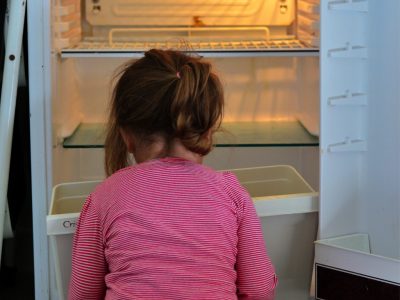UN Officials Cite Study that Finds Lockdowns, School Closures Killing More Children than COVID
There will be “intergenerational consequences for child growth and development.”

UN officials have pointed to a study that reveals lockdowns and school closures are doing more harm to children than the coronavirus itself, with many more deaths expected to come from the reaction to the outbreak, rather than the pandemic itself.
In a presentation seeking extra funding for coronavirus efforts, UNICEF director Henrietta H Fore said Monday,
“The repercussions of the pandemic are causing more harm to children than the disease itself.”
UNICEF nutrition program chief Victor Aguayo noted that the most harm is being done “by having schools closed, by having primary health care services disrupted, by having nutritional programs dysfunctional.”
The officials pointed to a study published in The Lancet that notes “physical distancing, school closures, trade restrictions, and country lockdowns” are worsening global child malnutrition.
The study estimates that an extra 6.7 million children will be at risk, and that lockdowns and other coronavirus responses could lead to more than 10,000 additional child deaths every month.
The UNICEF officials noted that would mean 128,000 more deaths among children within the next year.
Study: Global Lockdowns Killing 10,000 Children Per Monthhttps://t.co/GG9DWHZpeY
— Dan Bongino (@dbongino) July 28, 2020
The study complies research from the Washington-based International Food Policy Research Institute (IFPRI) and the Johns Hopkins Bloomberg School of Public Health.
It concludes that shut down strategies could lead to “life-long impacts on education, chronic disease risks, and overall human capital formation,” in addition to “intergenerational consequences for child growth and development.”
The estimates are said to “likely to be conservative, given that the duration of this crisis is unknown, and its full impacts on food, health, and social protection systems are yet to be realized.”
The study dovetails with other research that has concluded lockdowns will conservatively “destroy at least seven times more years of human life” than they save.
The German government has concluded that the impact of the country’s lockdown could end up killing more people than the coronavirus due to victims of other serious illnesses not receiving treatment.
As we have previously highlighted, in the UK there have already been up to 10,000 excess deaths as a result of seriously ill people avoiding hospitals due to COVID-19 or not having their hospital treatments cancelled.
A data analyst consortium in South Africa also found that the economic consequences of the country’s lockdown will lead to 29 times more people dying than the coronavirus itself.
Hundreds of doctors are also on record as opposing lockdown measures, warning that they will cause more death than the coronavirus itself.
While globalists have urged that lockdowns need to continue, medical and economic experts across the board in multiple countries are warning that the loss of life will be much greater than that caused directly by the virus itself, if lockdowns are not scrapped.
*
Note to readers: please click the share buttons above or below. Forward this article to your email lists. Crosspost on your blog site, internet forums. etc.

